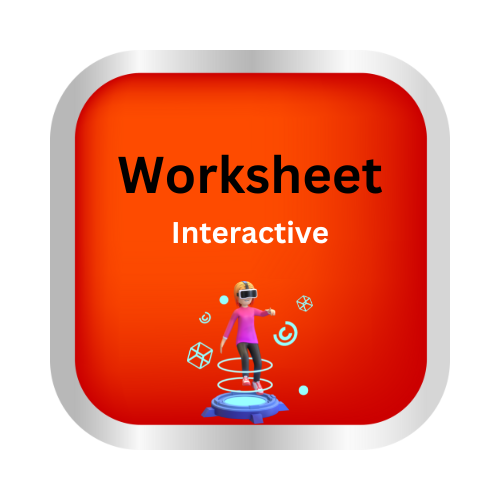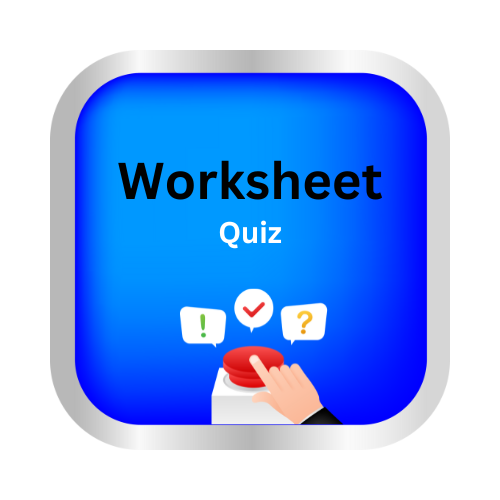list of ” Describe the difference between related words “
| No. | Word 1 | Meaning 1 | Word 2 | Meaning 2 | Difference Description |
|---|---|---|---|---|---|
| 1 | Big | Large in size | Huge | Very large in size | “Huge” is larger than “big”. |
| 2 | Happy | Feeling good or joyful | Excited | Feeling thrilled or full of energy | “Excited” is more energetic than “happy”. |
| 3 | Fast | Moving quickly | Quick | Happening in a short time | “Fast” is about speed; “quick” is about time taken. |
| 4 | Shout | Speak very loudly | Yell | Cry out loudly, often in anger | “Yell” is louder and more intense than “shout”. |
| 5 | Smart | Intelligent | Clever | Good at solving problems | “Smart” is general intelligence; “clever” is problem-solving. |
| 6 | Cold | Low in temperature | Freezing | Extremely cold | “Freezing” is colder than “cold”. |
| 7 | Start | To begin something | Begin | To start doing something | Both mean the same, but “begin” is more formal. |
| 8 | Laugh | Show joy with a sound | Giggle | Laugh in a light, silly way | “Giggle” is softer and higher-pitched than “laugh”. |
| 9 | Walk | Move by foot at a slow speed | Run | Move by foot at a fast speed | “Run” is faster than “walk”. |
| 10 | Jump | Push off the ground into the air | Hop | Jump on one foot | “Hop” is a small jump on one foot. |
| 11 | Cry | Shed tears | Sob | Cry loudly and heavily | “Sob” is stronger than “cry”. |
| 12 | Win | Be the best in a game or contest | Beat | Defeat someone in a game | “Beat” means to win over someone specifically. |
| 13 | Soft | Easy to press | Smooth | Even surface with no roughness | “Soft” is about feel; “smooth” is about texture. |
| 14 | Hard | Not soft | Firm | Solid and not easily moved | “Firm” is not too hard; “hard” is more solid. |
| 15 | Look | Use eyes to see | Stare | Look for a long time | “Stare” is longer and stronger than “look”. |
| 16 | Smell | Use nose to sense odor | Sniff | Take in air through the nose quickly | “Sniff” is the action; “smell” is the sense. |
| 17 | Tell | Say something to someone | Inform | Give facts or information | “Inform” is more formal than “tell”. |
| 18 | Sleep | Resting with eyes closed | Nap | Short sleep | “Nap” is a short sleep. |
| 19 | Thin | Not thick | Slim | Thin in a healthy way | “Slim” is usually a compliment. |
| 20 | Loud | High in volume | Noisy | Full of unwanted sound | “Noisy” means unpleasantly loud. |
| 21 | Help | Assist someone | Support | Give help over time | “Support” is usually ongoing help. |
| 22 | Push | Move something away | Pull | Move something toward you | “Push” is the opposite of “pull”. |
| 23 | Like | Enjoy something | Love | Enjoy something a lot | “Love” is stronger than “like”. |
| 24 | Sit | Be in a seated position | Rest | Take a break and relax | “Rest” may include sitting or lying down. |
| 25 | Quick | Fast in action | Rapid | Happening very quickly | “Rapid” is a little faster than “quick”. |
| 26 | Buy | Get something by paying for it | Purchase | Formal word for buy | Same meaning; “purchase” is more formal. |
| 27 | Ride | Travel on something (bike/horse) | Drive | Control a vehicle | “Ride” is as a passenger or rider; “drive” is controlling. |
| 28 | Short | Not tall | Small | Not large | “Short” is height; “small” is size. |
| 29 | Bright | Full of light | Shiny | Reflecting light | “Bright” gives light; “shiny” reflects light. |
| 30 | Close | Near something | Shut | Make something not open | “Shut” is an action; “close” can be about position or action. |
| 31 | Angry | Feeling mad | Upset | Feeling sad or angry | “Angry” is strong; “upset” can be mild. |
| 32 | Ask | Request something | Question | A sentence that asks | “Ask” is the action; “question” is the thing. |
| 33 | Happy | Joyful | Cheerful | Happy and smiling | “Cheerful” is visibly happy. |
| 34 | Brave | Showing courage | Bold | Not afraid of taking risks | “Bold” is more daring than “brave”. |
| 35 | Quiet | Making little sound | Silent | No sound at all | “Silent” is completely quiet. |
| 36 | Begin | Start | Commence | Formal word for start | “Commence” is more formal. |
| 37 | Sad | Feeling sorrow | Miserable | Very sad | “Miserable” is stronger than “sad”. |
| 38 | Break | To smash or split | Crack | To split slightly | “Crack” is a small break. |
| 39 | Throw | To toss something | Toss | To throw lightly | “Toss” is gentler. |
| 40 | Wash | Clean with water | Rinse | Wash quickly with water | “Rinse” is part of washing. |
| 41 | Stop | To not move anymore | Pause | To stop for a short time | “Pause” is temporary. |
| 42 | See | Notice with your eyes | Watch | Look at something carefully | “Watch” is longer and focused. |
| 43 | Make | Create something | Build | Make something by putting parts together | “Build” involves steps and parts. |
| 44 | Hard | Not easy | Difficult | Requiring much effort | “Difficult” is more formal. |
| 45 | Ask | Request information | Beg | Ask very emotionally | “Beg” is more serious. |
| 46 | Talk | Speak | Chat | Speak in a friendly way | “Chat” is more informal. |
| 47 | Old | Having lived a long time | Ancient | Very, very old | “Ancient” is much older. |
| 48 | Pretty | Nice to look at | Beautiful | Very pleasing to look at | “Beautiful” is stronger. |
| 49 | Eat | Put food in your mouth | Chew | Crush food in your mouth | “Chew” is part of eating. |
| 50 | Work | Do tasks | Job | Work that someone does regularly | “Job” is a kind of work. |
Let’s practice!
Pages: 1 2

